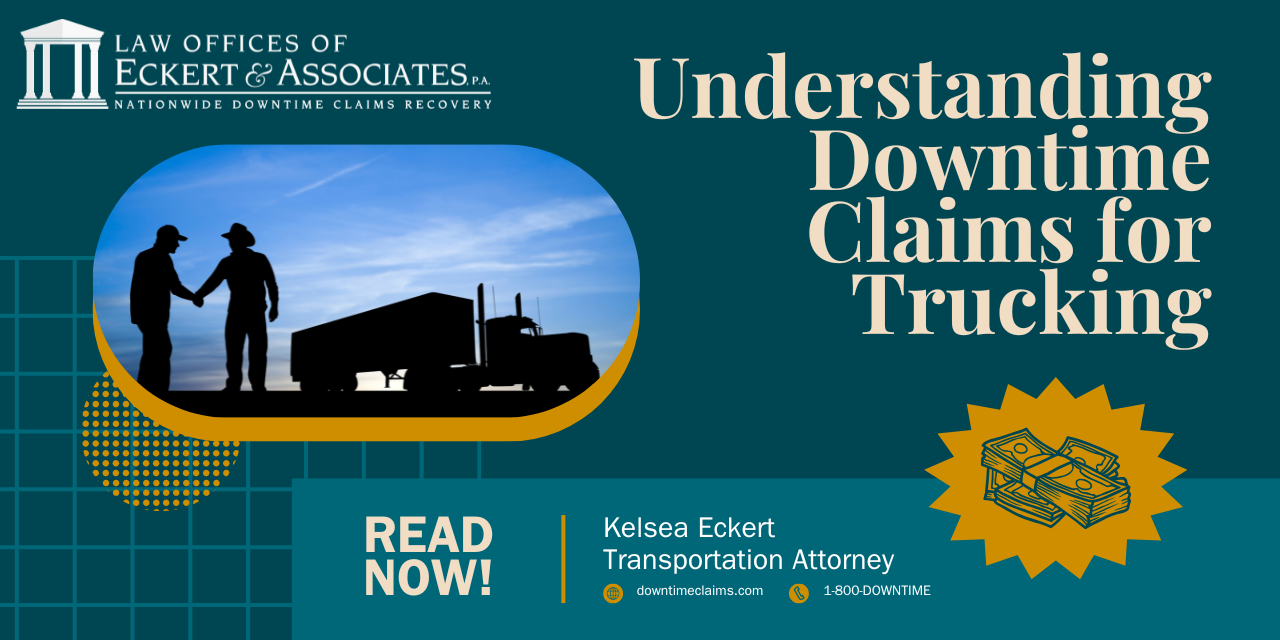Rescue Your Revenue

Understanding Downtime Claims for Trucking
For small carriers, expediters, and owner-operators, an accident can mean more than just vehicle damage—it often leads to a costly pause in your income. This downtime can strain finances, but knowing how to handle claims and keep the right insurance coverage can make a big difference. Here’s what you need to know to protect your business after an accident.
Take Quick Action After an Accident
After an accident, your first step should be to document everything and start the claim process as soon as possible. Instead of filing with your own insurance (which can lead to higher premiums), file with the at-fault driver’s insurance whenever possible. This way, you avoid added costs on your end while holding the responsible party accountable.
Gather Strong Documentation
Insurance companies need clear proof of your losses, so keep a thorough record of everything related to the accident. Useful documentation includes:
- Accident Details: Collect police reports, dashcam footage, witness statements, and any admissions of fault from the other driver.
- Repair Records: Record estimates, the actual repair timeline, and final costs to prove how long your truck was out of service and why.
- Income Losses: Show your missed income with previous haul records, settlement sheets, and any contracts you couldn’t complete.
Good records make it easier to show the real impact of your truck’s downtime, giving you a better chance of receiving fair compensation.
Understanding Downtime Claims and When They Apply
Downtime claims allow truck owners to recover lost income during repair periods, but not every accident qualifies. Several factors play into the success of a downtime claim:
- Who’s at Fault: You can usually only claim downtime if the accident wasn’t your fault.
- Repair Time: Claims are more likely to be approved if repairs take an extended period, but the timeline must be reasonable. Delays that seem excessive can make it harder to justify your claim.
- Proof of Income: Insurers need clear evidence of your income losses, so the more detailed your financial records, the better.
Knowing these details helps you avoid claim denials and strengthens your case for compensation.
Essential Insurance Coverage for Your Trucking Business
Having the right insurance coverage can prevent major financial losses. Here’s a rundown of policies that can support your business after an accident:
- Downtime Insurance: Sometimes called business interruption insurance, downtime coverage can help make up for lost income while your truck is being repaired. It’s worth noting any restrictions in the policy, as some have limits on claim filing times and other specifics.
- Gap Insurance: If your truck is totaled, gap coverage can cover the difference between what the insurance will pay and what you still owe, helping you replace the vehicle faster.
- Uninsured/Underinsured Motorist Coverage: If the at-fault driver has little or no insurance, this coverage can step in, helping you recover some of your lost income when the other party can’t pay.
Each of these types of coverage can support your financial recovery after an accident, making it easier to get back on the road.
Plan Ahead to Protect Your Business
Preparation is key to recovering from an accident smoothly. By understanding downtime claims, gathering documentation, and securing the right insurance, you can handle unexpected downtime more confidently. Keeping these steps in mind protects both your income and your business, ensuring you’re ready to face challenges and get back to work with as little delay as possible.
The information in this article is general in nature and is not intended as legal advice.
